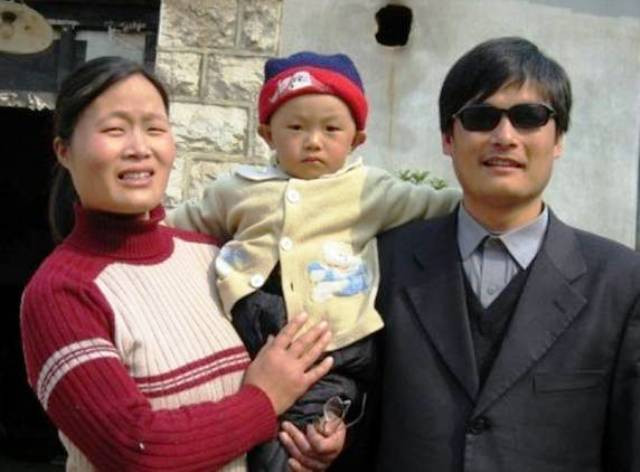Chinese dissident in US embassy: Hu Jia
Chen says his house arrest is punishment for defiantly continuing to speak out about official abuses.

Hu, who was detained over the weekend for questioning in the affair, also said Chinese security officials indicated that Chen had met with US ambassador Gary Locke since the activist's dramatic flight from house arrest.
"He is in the embassy," Hu, who had met with Chen after his escape, told AFP when asked whether he could confirm rumours of Chen's whereabouts.
"(Security officials) asked when Chen Guangcheng met with ambassador Gary Locke," he added.
"So it seems very clear that he has met with the American ambassador. I had no way of answering. I do not know what is going on inside. But when I heard this I was very surprised and excited."
Chen, a self-taught lawyer, fled house arrest in Shandong province on April 22 with the help of supporters from under the noses of dozens of guards and subsequently recorded a video alleging abuses against him and his family.
Since then, rumours have swirled that Chen had made it to safety in the US embassy, but the embassy and State Department officials in Washington have refused to confirm or deny them.
Any move by the United States to harbour a fierce government critic would be certain to antagonise Beijing, and the sensitive situation threatens to become a major diplomatic entanglement.
It comes as US Secretary of State Hillary Clinton and Treasury Secretary Timothy Geithner are due in Beijing on Thursday for an annual round of wide-ranging talks on the often testy China-US relationship.
A senior US diplomat, Kurt Campbell, arrived Sunday to meet Chinese officials over Chen's case, the New York Times reported, citing senior officials and diplomats in Washington and Beijing.
Chen, 40, won worldwide acclaim for exposing forced sterilisations and late-term abortions under China's "one child" policy, and for using his legal knowledge to help people battle a range of other injustices including illegal land grabs.
He and his family were put under round-the-clock house arrest after he completed a four-year jail sentence in September 2010.
Hu said he met with Chen after his escape and that Chen vowed not to seek US asylum but would stand his ground and fight the injustices against him and his family.
"He is not seeking political asylum," Hu said.
Chen says his house arrest is punishment for defiantly continuing to speak out about official abuses, and that he and his family had suffered beatings and other brutal treatment during what he has called an illegal house arrest.
Members of his family and some of those who helped him escape have since disappeared into Chinese custody, Hu and other activists have said.
"What he demands is that the Chinese government promise to protect him and his family and end the persecution. He wants to see legal rights protected."
"Chen Guangcheng is already safe. But his wife, his children, his mother, his brothers and others are not safe," Hu added.
Chen addressed Chinese Premier Wen Jiabao in his video, which details the harsh conditions of his house arrest and beatings of his wife and mother at the behest of local officials in his village of Dongshigu, demanding an investigation.
"Premier Wen, if you keep paying no attention to this, what will your people think about it?" he said in the video.
The last time a Chinese dissident sought refuge in the US embassy was in 1989.
Fang Lizhi, an academic and supporter of that year's Tiananmen Square pro-democracy demonstrations, was granted asylum in the embassy, where he stayed for a year before leaving in 1990 for exile in the United States.






1725099588-0/BeFunky-(41)1725099588-0-208x130.webp)












COMMENTS
Comments are moderated and generally will be posted if they are on-topic and not abusive.
For more information, please see our Comments FAQ